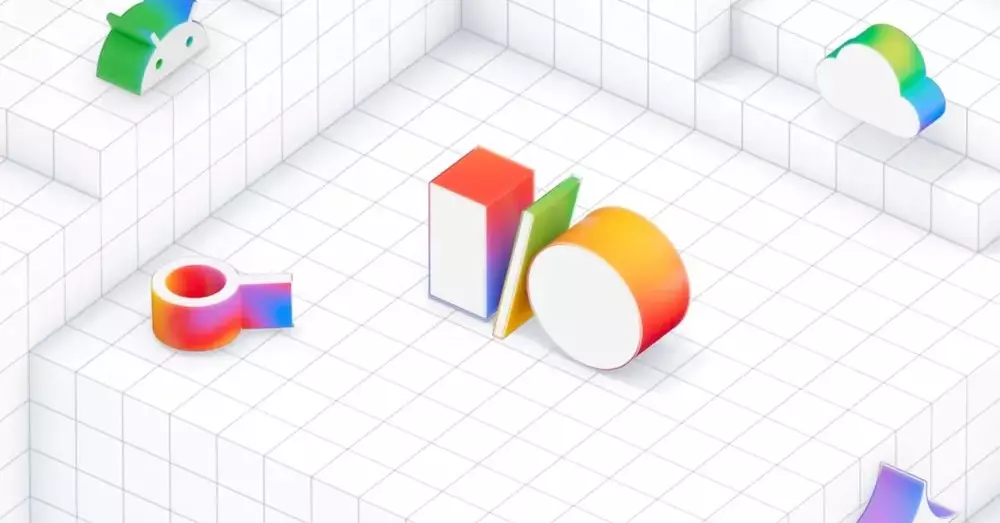As Google gears up for its highly anticipated I/O developer conference, the spotlight is set to predominantly illuminate the realms of Artificial Intelligence (AI) and Extended Reality (XR). This year’s conference marks a pivotal shift, as it casts aside the traditional expectations around Android OS announcements. With recent updates already unveiled, the focus now turns to the impressive strides Google is making in AI, particularly with its flagship project, Gemini. The significance of this shift cannot be understated; it reflects a broader industry trend where tech companies are racing towards AI integration in their products, necessitating a deeper understanding of its implications.
In the context of an ongoing rivalry with tech giants like OpenAI and Microsoft, Google’s commitment to elevating its AI offerings through the I/O keynote is both strategic and essential. The pressure to innovate remains high, given the competitive landscape. This year’s event will provide a critical platform for Google to demonstrate its advancements, manage expectations, and excite developers and consumers alike. Being the first major tech event after Microsoft’s Build, the stage is deftly set for an engaging comparison of both companies’ approaches to AI, likely drawing significant attention from developers, analysts, and enthusiasts.
What to Expect from the Keynote
Mark your calendars for May 20th, as the keynote kicks off at 10 AM PT / 1 PM ET. For those seeking to participate virtually, Google plans to host the event on its I/O website and YouTube channel, ensuring accessibility. Attendees should prepare for a lengthy session, as keynotes typically extend over a couple of hours. Although major Android announcements are off the table this time, the extensive AI discussion will likely make up for it, offering ample content to keep viewers engaged.
The introduction of new features related to the Gemini project is expected to steal the show. This includes advanced capabilities designed for various devices, demonstrating the flexibility and power of Google’s AI constructs. Developers, in particular, will be keen to learn how these new tools can be integrated into their applications, potentially revolutionizing user experiences. Moreover, insights into Project Astra, intended to showcase Google’s bold vision for future AI applications, will surely be a highlight, blending practicality with aspirational innovation.
Extended Reality: Google’s XR OLED Futures
While AI takes center stage, it is crucial to acknowledge that XR will not be sidelined. Google’s prior confirmation regarding support for Gemini in the Android XR environment hints at an unfolding narrative in a space burgeoning with potential. Following minimal revelations in the recent Android Show, anticipation around Google’s prototype smart glasses is palpable. With competitors like Samsung looming, the I/O keynote might be Google’s final opportunity to solidify its XR narrative and address the burgeoning interest in XR hardware prior to potential market distractions.
The continued evolution of XR technologies represents an exciting frontier for Google, particularly in how these innovations can reshape user interaction with technology. Emerging XR capabilities could transcend gaming and entertainment, paving the way for applications in education, training, and remote collaboration.
Shifting Company Culture and Expectations
Over the years, Google has shifted its I/O focus, signaling a deliberate pivot away from hardware unveilings that once defined the conference. The declining emphasis on launching devices like Pixel phones or Nest technology hints at a nuanced strategy that prioritizes software advancements over hardware. This shift not only reflects Google’s confidence in its AI initiatives but also its recognition of the growing importance of user-centric software experiences.
By focusing on AI and XR, Google appears poised to redefine its corporate identity amid fierce competition. The unveiling of innovations in these domains could potentially reframe how users engage with Google’s ecosystem, thereby setting a new benchmark in technology integration. As we approach I/O 2023, one cannot help but hope that Google’s embrace of these advancements translates into tangible benefits for consumers and developers alike, pushing the boundaries of what technology can achieve in everyday life.
As the countdown to Google I/O continues, the excitement builds not just for new announcements, but for the reimagined direction in which the tech titan is steering its vast resources. With AI and XR at the helm, the potential for impactful change is more significant than ever.


Leave a Reply